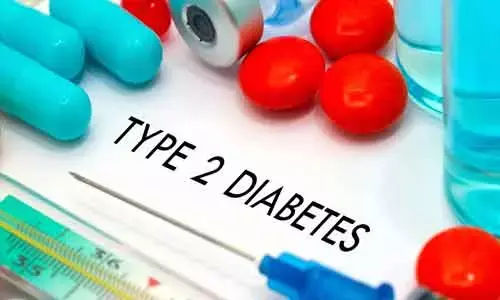- Home
- Medical news & Guidelines
- Anesthesiology
- Cardiology and CTVS
- Critical Care
- Dentistry
- Dermatology
- Diabetes and Endocrinology
- ENT
- Gastroenterology
- Medicine
- Nephrology
- Neurology
- Obstretics-Gynaecology
- Oncology
- Ophthalmology
- Orthopaedics
- Pediatrics-Neonatology
- Psychiatry
- Pulmonology
- Radiology
- Surgery
- Urology
- Laboratory Medicine
- Diet
- Nursing
- Paramedical
- Physiotherapy
- Health news
- Fact Check
- Bone Health Fact Check
- Brain Health Fact Check
- Cancer Related Fact Check
- Child Care Fact Check
- Dental and oral health fact check
- Diabetes and metabolic health fact check
- Diet and Nutrition Fact Check
- Eye and ENT Care Fact Check
- Fitness fact check
- Gut health fact check
- Heart health fact check
- Kidney health fact check
- Medical education fact check
- Men's health fact check
- Respiratory fact check
- Skin and hair care fact check
- Vaccine and Immunization fact check
- Women's health fact check
- AYUSH
- State News
- Andaman and Nicobar Islands
- Andhra Pradesh
- Arunachal Pradesh
- Assam
- Bihar
- Chandigarh
- Chattisgarh
- Dadra and Nagar Haveli
- Daman and Diu
- Delhi
- Goa
- Gujarat
- Haryana
- Himachal Pradesh
- Jammu & Kashmir
- Jharkhand
- Karnataka
- Kerala
- Ladakh
- Lakshadweep
- Madhya Pradesh
- Maharashtra
- Manipur
- Meghalaya
- Mizoram
- Nagaland
- Odisha
- Puducherry
- Punjab
- Rajasthan
- Sikkim
- Tamil Nadu
- Telangana
- Tripura
- Uttar Pradesh
- Uttrakhand
- West Bengal
- Medical Education
- Industry
Regular efpeglenatide use significantly reduces cardiorenal events in diabetics: AMPLITUDE O Trial

USA: Weekly injection of efpeglenatide has the potential to improve outcomes for high-risk diabetes patients with heart or kidney disease, shows findings from the AMPLITUDE O trial. Efpeglenatide, a glucagon-like peptide-1 receptor agonist drug (GLP-1 RA), is an injectable drug with glucose-and weight-lowering effects.
According to the study, the regular use of the glucose-reducing drug significantly reduced the first occurrence of heart attack, stroke, or death, and reduced the progression of kidney disease in type 2 diabetes patients.
The findings of the study were presented at the virtual 81st Scientific Sessions of the American Diabetes Association (ADA) and simultaneously published in The New England Journal of Medicine.
The majority (98%) of adults with type 2 diabetes have at least one comorbid chronic condition, including cardiorenal conditions impacting the heart and kidney. In fact, 24% of people living with diabetes have kidney disease, 22% have cardiovascular disease, and 82% of people with diabetes have hypertension—a leading cause of heart disease.
Efpeglenatide is a glucagon-like peptide-1 receptor agonist drug (GLP-1 RA), a class of drug used to treat diabetes that reduces glucose levels, weight, and blood pressure. Earlier trials have shown that GLP-1 RA drugs based on human GLP-1 reduce cardiovascular and kidney outcomes.
Hertzel C. Gerstein, Professor, McMaster University and Hamilton Health Sciences, and Deputy Director Population Health Research Institute in Ontario, Canada, and colleagues assessed the effects of a GLP-1 RA based on exendin-4 (animal GLP-1) either with or without an SGLT2 inhibitor drug in patients with cardiovascular and/or kidney disease.
For this purpose, the researchers conducted the AMPLITUDE O trial conducted in 28 countries and included more than 4,000 participants with type 2 diabetes.
Over two years, patients assigned to weekly injections risk of a heart attack, stroke, or death from any cause. Similar effects were observed in the presence and absence of an SGLT2 inhibitor drug. There were no serious side effects.
"The AMPLITUDE O trial establishes efpeglenatide, an exendin-4 based GLP-1 RA, as an effective cardioprotective drug for type 2 diabetes patients with cardiovascular and/or kidney disease," said Hertzel C. Gerstein. "We are encouraged that this once-a-week injection, safely and effectively reduced cardiovascular and progression of kidney disease in patients with long-standing diabetes who had a high prevalence of cardiovascular and kidney disease."
Dr Kamal Kant Kohli-MBBS, DTCD- a chest specialist with more than 30 years of practice and a flair for writing clinical articles, Dr Kamal Kant Kohli joined Medical Dialogues as a Chief Editor of Medical News. Besides writing articles, as an editor, he proofreads and verifies all the medical content published on Medical Dialogues including those coming from journals, studies,medical conferences,guidelines etc. Email: drkohli@medicaldialogues.in. Contact no. 011-43720751


